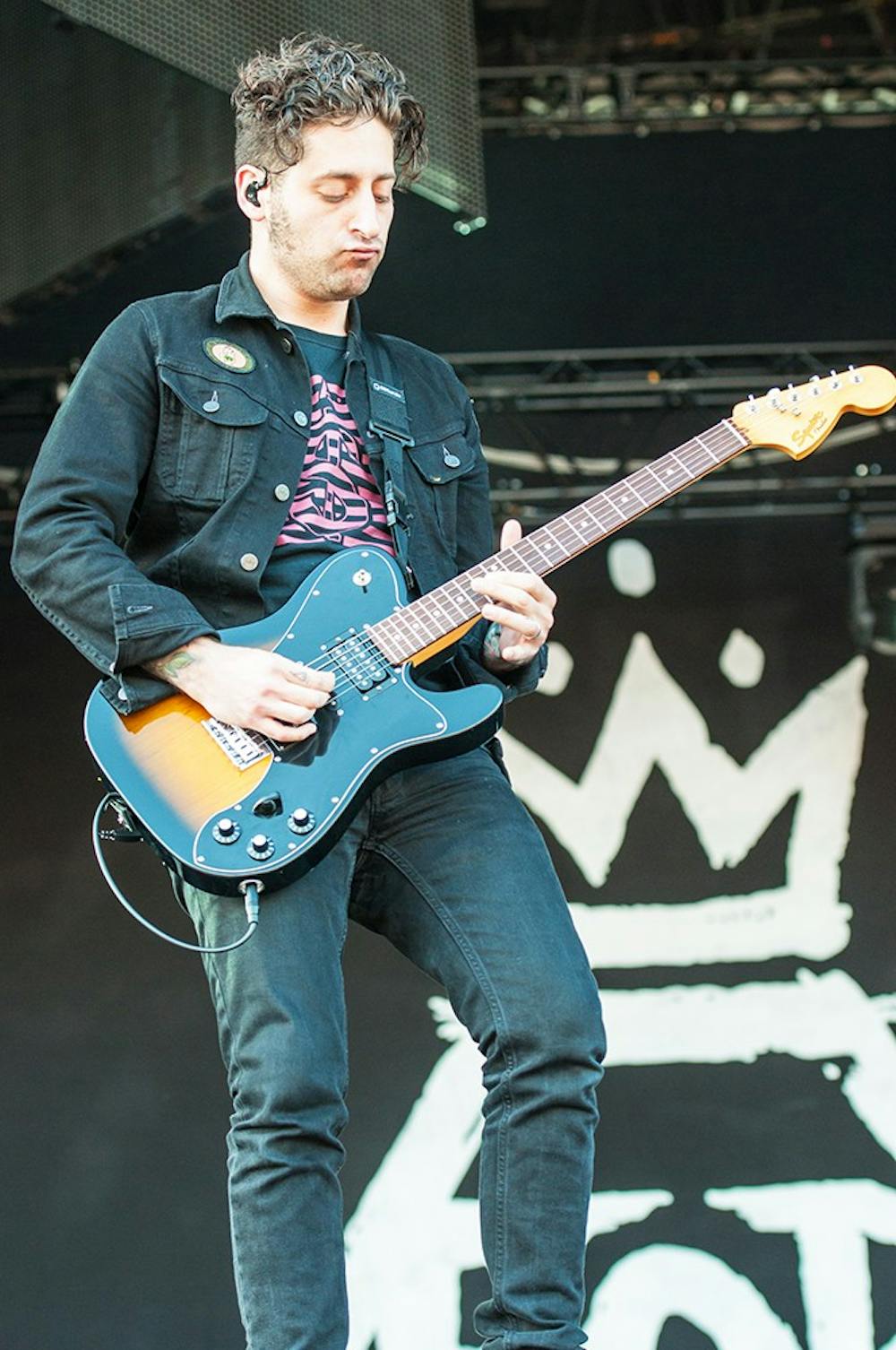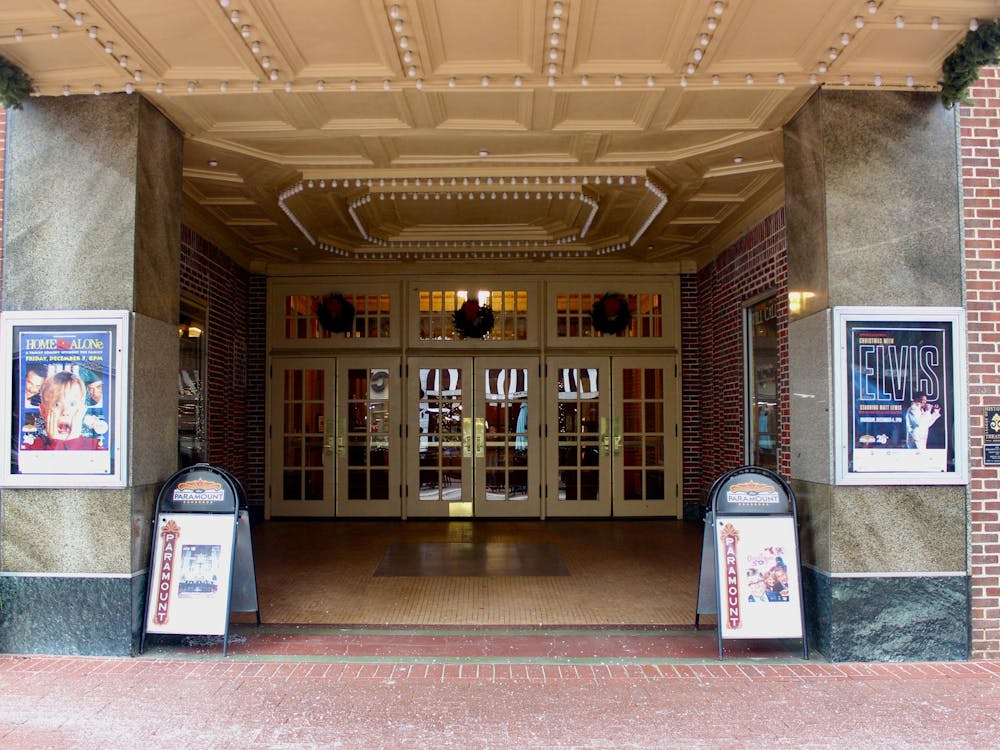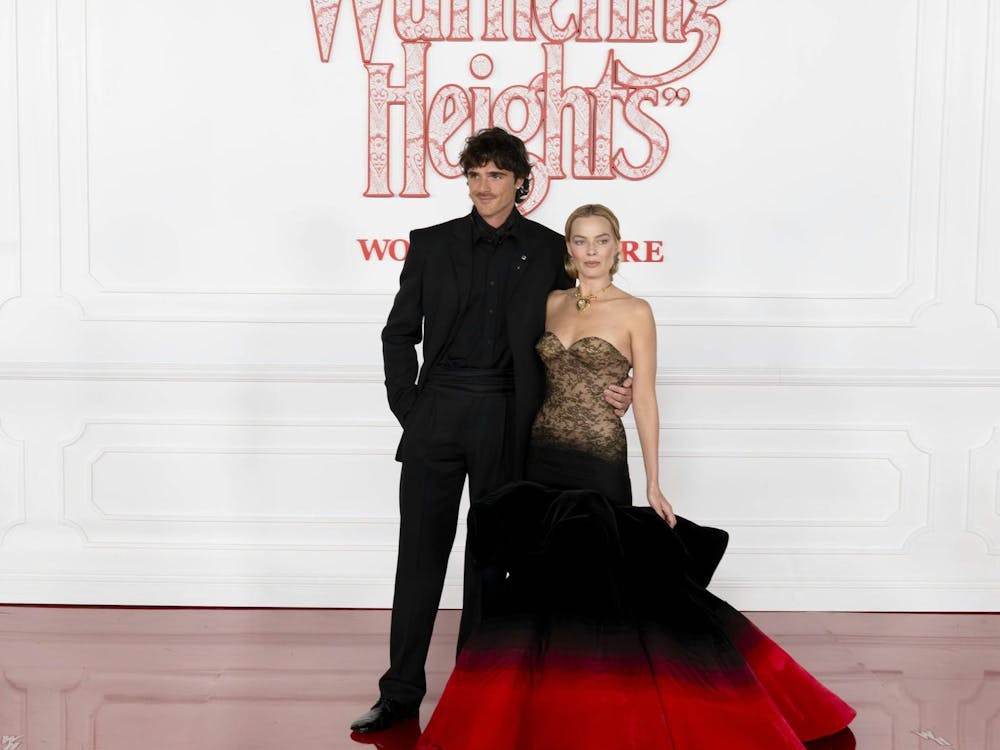Fall Out Boy’s debut effort, “Take This To Your Grave,” erupted onto the pop-punk scene in 2003. The band toured haphazardly under the label Fueled by Ramen, eventually becoming an emo staple in the hearts of angsty, music-loving teens across the nation. 2005’s “From Under the Cork Tree” solidified the group’s fame, appealing to wider audiences with hallowed singles “Dance, Dance” and “Sugar, We’re Goin Down.”
Then and now, the band’s ability to write engaging lyrics and revive traditional pop-punk tropes has proved wildly successful and attractive for thousands of fans. Lead guitarist and lyricist Pete Wentz’s wordsmithing can be cleverly sharp, as with “Wear me like a locket around your throat / I’ll weigh you down, I’ll watch you choke,” from “Nobody Puts Baby In The Corner”; genuinely depressed with pleas like, “I’d trade all my tomorrows for just one yesterday” off “Just One Yesterday”; or wonderfully, nostalgically biting in old works such as, “Where is your boy tonight? / I hope he is a gentleman, and maybe he won’t find out what I know / You were the last good thing about this part of town,” from “Grand Theft Autumn/Where is Your Boy.” Lead singer Patrick Stump’s songwriting shows insanely catchy melodies alongside a gut-punching punk rock foundation, particularly on recent efforts “Save Rock and Roll” and “American Beauty/American Psycho,” making the albums’ emotional cores easily accessible and expressible.
For millennials who screamed along to “Hum Hallelujah” in 2007 and tweens confusedly crying to “What a Catch, Donnie” in 2016, “Thnks fr th Mmrs” will play at their funerals. They’ll dance to “Alone Together” at their weddings. Any broken heart can be mended by blasting “Miss Missing You” on repeat. Fall Out Boy’s appeal is timeless and comforting for scores of people, whether they be downtrodden, angry or ready to jam.
More than a decade after their leap to fame, Fall Out Boy has embarked on a follow-up tour to 2014’s massive “Monumentour” with “Wintour is Coming,” slated to stop in Charlottesville next Wednesday evening at John Paul Jones Arena. In advance of their long-awaited performance, Arts & Entertainment spoke with Fall Out Boy founding member and lead guitarist Joe Trohman for details on the headliner’s origins, current tour and music-making prowess.
Q&A
Arts & Entertainment: You’ve obviously been with Fall Out Boy a long time, but you’ve had a lot of side projects over the years, like Alma [Angelus] and The Damned Things. Did you ever have to work on those projects while you were involved with Fall Out Boy, or did they only happen while Fall Out Boy was on hiatus?
Joe Trohman: Everything I worked on that was inside of Fall Out Boy or outside of Fall Out Boy happened on top of each other. I think everybody in the band has workaholic syndrome, so if there’s a slight moment of downtime, they start to get frustrated, and we need to fill that void with something. I think that’s how it starts. … As far as the band goes, we’re producing or mixing or writing with anyone or anything. It’s always just finding more creative stuff to do, so yeah I definitely did — anything like that I’ve done while doing Fall Out Boy.
AE: It’s crazy to think how much time all of those projects must take.
JT: It was easier to do it before I had a kid. I still do it while having a kid, it’s just I have to learn how to manage my time better. I think then I wasn’t exhausted on my downtime; now I’m exhausted. I’m just trying to find these moments, but I can’t help it. It’s something I get from my dad, where my dad is addicted to working. I think maybe I am a little bit as well. But I also like what I get to do. I get to make music, and I get to help other people who get to make it. I get to mess around with sounds, gear, and it’s all stuff I always like doing, stuff I used to just do for fun. … Sometimes I get to get paid to do it — sometimes I get to do it just to help other people and it’s all very satisfying.
AE: Do you write any of the music for Fall Out Boy?
JT: I did a very small amount up until “Folie à Deux,” and on these last two records I’ve done a lot more. I wrote a fair amount on both “Save Rock and Roll” and “American Beauty.”
AE: Looking into some of your side projects, you’ve done a lot of hardcore stuff, which is not really what Fall Out Boy does. Do you feel like your hardcore background has influenced Fall Out Boy’s music at all?
JT: We all came from playing in hardcore bands. You can hear some of it in bursts. … As far as the genre, it becomes more blurred because we take so much inspiration from so many different aspects of music that it’s really hard to really go, ‘Well, this is that style of music or this is this thing,’ and I think it’s really really cool. … You can definitely hear whether it’s rap or metal or funk or anything — you can hear all those … in the music a little bit. Maybe you have to search a little harder for it. Or you could just let go and just take it in however it is — it’s definitely in there.
AE: Is this how you guys make your music? Is it a conscious process or do you just go with what feels right at the time?
JT: I think there’s aspects where you hear something and you’re like, ‘I want to write
something that has that sound or feel or vibe.’ … It’s always going to come from something else or somewhere else, something that you already heard or [were] inspired by. It’s impossible to escape your inspirations, but I think most great artists are creators. They’re heavily inspired by someone who’s already been there before, done that. You just kind of can’t help — hopefully you’ll put your own twist on it rather than just stealing it.
AE: I think one reason Fall Out Boy fans are so loyal is because you retain some of the same punk rock style you started with, the sound everyone loved you for in the beginning, but then you also are able to transform them with every album and keep them really edgy. How do you balance those two things? Where does the balance come from?
JT: As far as it sounding like Fall Out Boy, I think one very obvious aspect is Patrick being the singer. We didn’t change singers, it’s still him. … He has a very unique sounding voice. I don’t think there’s anyone else that sounds like him, which is a really important aspect to have in a band. Well just being a singer, whether you’re a solo artist or you have a band, having a unique voice… puts you ahead of the game, but that’s not the only thing. … There’s other aspects of our writing that are still always going to be like somewhat rooted in where we started. … We also have loved the idea of pop songwriting, or pop song structures, and I think that’s always been very inherent in the way we build our songs. … We’re not afraid to try new things, add different elements, different sonic elements, or different style elements. I think that we know how to do that, or at least we’ve been learning how to do that in a way I think is tasteful — it’s not like ‘Hey, we’re just going to make a country record.’ If we like something that sounds a little country, it’s something we’ll add in. Like in “Uma Thurman,” I played Lap Steel [guitar] on it. It doesn’t sound like surf, and it doesn’t sound like country, it just is an element that maybe I could say was inspired by my love of blues or country or something like that. … It’s an aspect that we’ve never really had on a record, but also you know, it fits very well.
AE: Whatever you’re doing, it’s working for you, so keep doing it.
JT: We also have a lot of good counsel around us to help keep us focused if we’re ever falling off the rails.
AE: Is it your family influences, your fans, or actual artistic advisors who guide you?
JT: Anything from producers to artistic advisors. …I think it’s very rare when the artist can go in and produce their own material and have it come out something amazing. I think you can get self-indulgent, so you have to have some outside influences that you can trust that can help steer you back on the path if you start to veer off of it. That’s the point of a producer, or normally is the point of a producer.
AE: Jumping back to when you were talking about Patrick and his voice — you guys have always been compared with Panic! at the Disco in particular, and in the past they’ve become less of a band. Even before Spencer Smith and Dallon Weekes left recently, Brendon Urie was really the only face fans saw, so to speak, with the band. Are you ever worried about that happening with Fall Out Boy? Pete and Patrick are the faces you see quite often.
JT: Well if you look at Panic! at the Disco, the reason you see Brendon is because he’s kind of the only original member left of the band… If you followed Panic! at the Disco from the beginning it wasn’t that case. The band has evolved a lot … partially because of the loss of the original members of the band. … I think in general with a band, you’re going to have people who are more focal points than others. Whether it’s Queen, that’s maybe focused more on Freddie Mercury and Brian May, but still focused a lot on [John] Deacon and [Roger] Taylor as well … or like Zeppelin or Aerosmith. … You always choose one or two guys to focus on — you still know who all four of them are, however many there are. Am I worried about it happening with Fall Out Boy? No, because that’s not the kind of band we are. … I think you can’t expect press or the media to focus on four people all of the time. Especially when we’re not all the lead singer.
AE: Do you know why you guys are coming to Charlottesville to play? The Charlottesville scene is really traditionally folksy [alongside] the occasional DJ or rapper with the college crowd, whereas somewhere like Virginia Beach, there is a really big youth population, more like a high school crowd, which definitely connects with the emotion in your music.
JT: The reason we’re going where we’re going is because the venue makes sense, as far as the venues that we’re playing. …It probably just works size-wise, and I think we’re lucky enough to have a lot of fans who really dig what we do, who are really die-hard about it. We’re very lucky, a lot of them will probably make the … trek.







